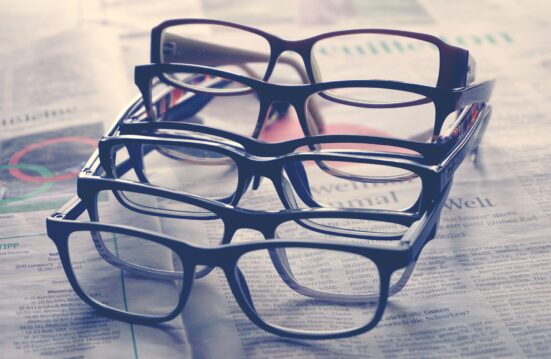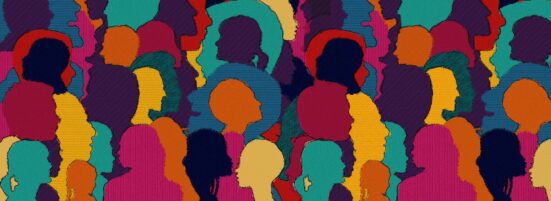Scientific Articles
Selected articles published by STARS members
de Oliveira, V. J. M., de Souza, C. G. Q., de Oliveira Ferreira, A. B., de Seixas Seixas, R., Pereira, I. L., & Streit, I. A. (2025). Aging creatively as a woman: a salutogenic reading in a vulnerability context. Gerontologia Brasil, 1(1), 39-54. https://doi.org/10.62827/gb.v1i1.0005
Hochwälder, J. (2025). The implications of the contextualization of scales for the measurement of sense of coherence. International Journal of Applied Psychology, 15(2), 56-59. doi: 10.5923/j.iap.20251502.03
Jasiński, A. M., Derbis, R., Rakoczy, J., & Wrzesińska, M. (2025). The sense of coherence scale and relationships between sense of coherence, sociodemographic variables and chronic disease. Scientific Reports, 15(1), 1-14. https://doi.org/10.1038/s41598-025-02998-6
Klein, D., & Vogt, T. (2025). Students’ sense of coherence after attending a university seminar on health literacy and salutogenesis in physical education. Journal of Physical Education and Sport, 25(5), 954-959. https://doi.org/10.7752/jpes.2025.05105
Mana, A., Mana, Y., & Sagy, S. (2025). Explaining resilience in response to potential traumatic event: Sense of coherence and trajectories of anxiety during COVID-19. Psychological Trauma: Theory, Research, Practice, and Policy. Advance online publication. https://doi.org/10.1037/tra0001883
Papathanasiou, C., Georgiou, K., Barbaresos, F., Kougioumtzi, A., & Stylianidis, S. (2025). Echoes of resilience: young refugees’ experiences in a closed controlled access centre from a salutogenic perspective. International Journal of Migration, Health and Social Care. https://doi.org/10.1108/IJMHSC-02-2025-0014
Sultana, M., Hayashi, Y., Tamim, T. R., Chiba, R., & Uddin, M. K. (2025). Psychometric properties of the Bangla version of the sense of coherence scale among university students in Bangladesh. PloS one, 20(4), e0320896. https://doi.org/10.1371/journal.pone.0320896
Antonovsky, A. (2024). The salutogenic model of health: Ease, dis-ease, and the river in between. In: P. Liamputtong (Ed.,) Handbook of concepts in health, health behavior and environmental health. Singapore: Springer. Access here
Erhard, M. C. (2024). Leaving Haredi Judaism: Coping Resources and Perceived Social Support During Community Transitions and Religious Disaffiliation. Journal for the Scientific Study of Religion. Access here
Gabay, G. (2024). The protective role of sense of coherence in resident physicians facing secondary trauma due to patient death in intensive care—A qualitative inquiry. Death Studies, 1-12. Access here
Granevald, V. S., (2025). Exploring factors related to special needs educators’ work-related well-being in preschool settings. European Journal of Special Needs Education, 1-16. Access here
Granevald, V. S., Vinterek, M., & Strömsten, L. (2024). Exploring the job demands and resources and work-related sense of coherence of preschool educators working with children in need of special support. Journal of Early Childhood Education Research, 13(3), 141-172. Access here
Hochwälder, J. (2024). Antonovsky’s construct of sense of coherence and the tripartite construct of meaning in life: Comparison and implications. The Humanistic Psychologist, 53(1), 163-181. Access here
Heufemann, N. D. S. C., Streit, I. A., Ferreira, H. J., Kirk, D., & de Oliveira, V. J. M. (2024). Active ageing in a vulnerable context: Moa’s life story from a salutogenic perspective. Estudos Interdisciplinares sobre o Envelhecimento, 29. Access here
Jasiński, A. M., Derbis, R., Wrzesińska, M., Tušl, M., & Bauer, G. F. (2024). Validity and reliability of the Polish adaptation of the work-related sense of coherence scale. BMC psychology, 12(1), 659. Access here
Klein, D., & Vogt, T. (2024). Salutogenetisch orientierter Sportunterricht: Theoretische Überlegungen und deren exemplarische Implementation in die Sportlehrerinnen- und Sportlehrerbildung. Der Mensch – Zeitschrift für Salutogenese und anthropologische Medizin, 62/63(1-2), 29-35. Access here
Libster, M. M. (2024). Integrative nursing as a rudder for salutogenic system change. Journal of Integrative Nursing, 6(1), 1-2. Access here
Oliveira, V. J.M., (2024). A theoretical model of health promotion for physical education: salutogenesis on the scene. Revista Pensar a Prática, 27. Access here
Weiss‐Dagan, S., & Taubman–Ben‐Ari, O. (2024). Perceived stress and personal growth following the transition to military service: The role of sense of coherence and perceived social support. Stress and Health. Access here
Bodman, G. M., & Garista, P. (2023). The Rug Methodology in Qualitative Studies. International Journal of Qualitative Methods, 22. Access here
Brunelli, L., Smith, H., & Woolrych, R. (2022). A salutogenic urban design framework: the case of UK local high streets and older people. Health Promotion International, 37(5), daac102. Access here
Ratnayake, D. R. D. L., Usoof, R. S. A., & Ekanayake, L. (2023). Cross-cultural adaptation and validation of a Sinhalese version of the Sense of Coherence 13-item scale among adolescents in Sri Lanka. Ceylon Journal of Science, 52(4), 485-493. Access here
Alharbi, F. S., Aljemaiah, A. I., & Osman, M. (2022). Validation of the factor structure and psychometric characteristics of the Arabic adaptation of the sense of coherence SOC-13 scale: a confirmatory factor analysis. BMC psychology, 10(1), 1-15. Access here
Atias, D., Machluf-Biton, M., Lior, Y., Ohayon, O., & Antonovsky, A. (2022). Coping mechanisms and burnout among checkpoint soldiers in the IDF: a salutogenic perspective. Health promotion international. Access here
Brett, C. E., Mathieson, M. L., & Rowley, A. M. (2022). Determinants of wellbeing in university students: The role of residential status, stress, loneliness, resilience, and sense of coherence. Current Psychology, 1-10. Access here
Celeste, R. K., Scalco, G. P., Abegg, C., Pattussi, M. P., Ely, H. C., Davoglio, R. S., & do Carmo Matias Freire, M. (2022). Structural validity of the Brazilian version of the Sense of Coherence scale (SOC-13) in oral health research: exploratory and confirmatory factor analysis. BMC Oral Health, 22(1), 1-9. Access here
Gabay, G., & Ben-Asher, S. (2022). From a View of the Hospital as a System to a View of the Suffering Patient. Frontiers in Public Health, 9, 800603. Access here
Pachi, A., Sikaras, C., Ilias, I., Panagiotou, A., Zyga, S., Tsironi, M., … & Tselebis, A. (2022). Burnout, Depression and Sense of Coherence in Nurses during the Pandemic Crisis. In Healthcare, 10(1). Access here
Pijpker, R., van der Kamp, D., Vader, S., den Broeder, L., & Wagemakers, A. (2022). Socioeconomic status and mental health during the COVID-19 crisis: Are sense of coherence, sense of community coherence and sense of national coherence predictors for mental health? Health Psychology Report, 10(1). Access here
Pijpker, R., Veen, E. J., Vaandrager, L., Koelen, M., & Bauer, G. F. (2022). Developing an Intervention and Evaluation Model of Outdoor Therapy for Employee Burnout: Unraveling the Interplay Between Context, Processes, and Outcomes. Frontiers in Psychology, 13. Access here
Reinodt, S., Haglund, E., Bremander, A., Jarbin, H., & Larsson, I. (2022). Adolescents’ Long-Term Experiences of Manageability, Comprehensibility, and Meaningfulness of a Group-Based Exercise Intervention for Depression. International Journal of Environmental Research and Public Health, 19(5). Access here
Robinson, S. M. (2022). The Enriched Environment in a Person-Centered Approach to the Promotion and Maintenance of Well-Being: A Salutogenic Model. Journal of the Center for Applied Social Neuroscience, 412. Access here
Shorey, S., Ang, E., Baridwan, N. S., Bonito, S. R., Dones, L. B. P., Flores, J. L., … & Kunaviktikul, W. (2022). Salutogenesis and COVID-19 pandemic impacting nursing education across SEANERN affiliated universities: A multi-national study. Nurse Education Today, 105277. Access here
Tušl, M., de Bloom, J., & Bauer, G. F. (2022). Sense of coherence, off-job crafting, and mental well-being: A path of positive health development. Health Promotion International, 37(6). Access here
Antonovsky, A., Danon, R., Schiff, M., & Shelef, L. (2021). Predicting mental burnout among Israeli Home Front Command soldiers during the covid-19 pandemic. Health Promotion International, 1-13. Access here
Chan, S. H., & Shorey, S. (2021). Healthcare professionals’ sense of coherence of parental involvement in neonatal intensive care units: A framework synthesis. Research in Nursing & Health, 44(6), 875-890. Access here
Danioni, F., Sorgente, A., Barni, D., Canzi, E., Ferrari, L., Ranieri, S., … & Lanz, M. (2021). Sense of coherence and COVID-19: A longitudinal study. The Journal of Psychology, 155(7), 657-677. Access here
Hardy, L. J., Mana, A., Mundell, L., Neuman, M., Benheim, S., & Otenyo, E. (2021). Who is to blame for COVID-19? Examining politicized fear and health behavior through a mixed methods study in the United States. PloS one, 16(9). Access here
Hardy, L. J., Mana, A., Mundell, L., Benheim, S., Morales, K. T., & Sagy, S. (2021). Living in opposition: How women in the United States cope in spite of mistrust of federal leadership during the pandemic of Covid‐19. Journal of Community Psychology, 49(6), 2059-2070. Access here
Limarutti, A., Maier, M. J., & Mir, E. (2021). Exploring loneliness and students’ sense of coherence (S-SoC) in the university setting. Current Psychology, 1-12. Access here
Mana, A., Bauer, G. F., Magistretti, C. M., Sardu, C., Juvinyà-Canal, D., Hardy, L. J., … & Sagy, S. (2021). Order out of Chaos: Sense of coherence and the mediating role of coping resources in explaining mental health during COVID-19 in 7 countries. SSM-Mental Health. Access here
Mana, A., Super, S., Sardu, C., Juvinya Canal, D., Moran, N., & Sagy, S. (2021). Individual, social and national coping resources and their relationships with mental health and anxiety: A comparative study in Israel, Italy, Spain, and the Netherlands during the Coronavirus pandemic. Global Health Promotion, 28(2), 17-26. Access here
Mana, A., Catz, O., Mana, Y., Neuman, M., Benheim, S., & Sagy, S. (2021). How do people cope during the COVID-19 pandemic and stay well? A salutogenic longitudinal study in Israel. Frontiers in Psychology, 4377. Access here
Meier Magistretti, C., Sallaway-Costello, J., Fatima, S., & Hartnoll, R. (2021). People-Planet-Health: promoting grassroots movements through participatory co-production. Global Health Promotion, 28(4), 83-87. Access here
Misamer, M., Signerski-Krieger, J., Bartels, C., & Belz, M. (2021). Internal locus of control and sense of coherence decrease during the COVID-19 pandemic: A survey of students and professionals in social work. Frontiers in Sociology, 174. Access here
Polhuis, K. C., Vaandrager, L., Soedamah-Muthu, S. S., & Koelen, M. A. (2021). Development of a salutogenic intervention for healthy eating among Dutch type 2 diabetes mellitus patients. Health Promotion International, 36(6), 1694-1704. Access here
Thompson, K., Herens, M., van Ophem, J., & Wagemakers, A. (2021). Strengthening sense of coherence: Evidence from a physical activity intervention targeting vulnerable adults. Preventive medicine reports, 24, 101554. Access here

